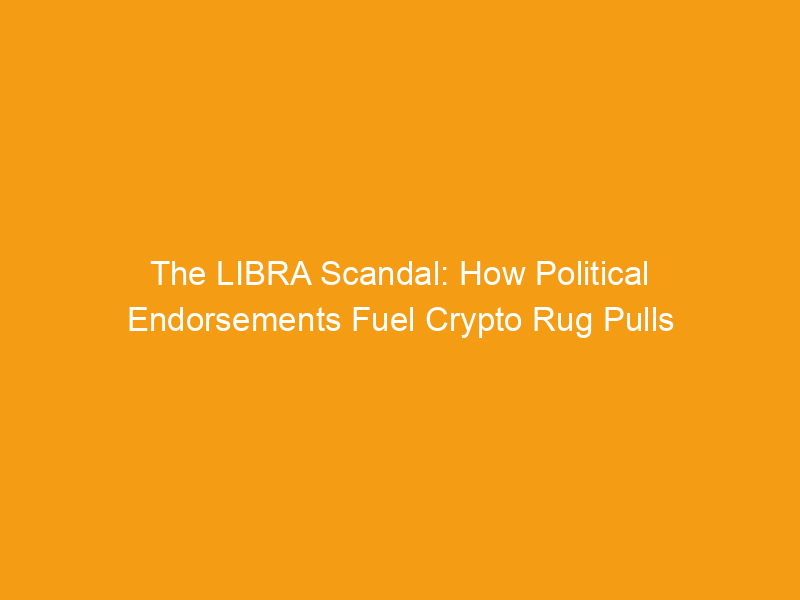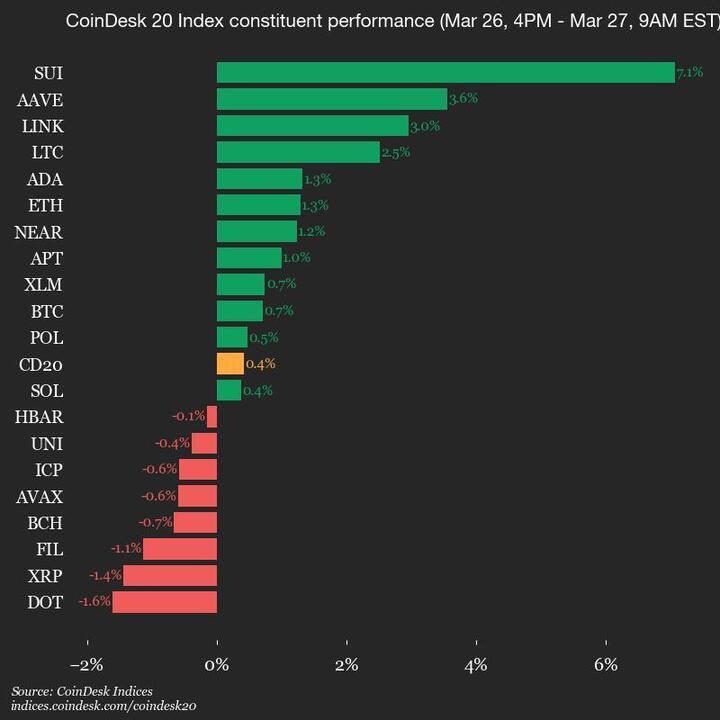The Intersection of Politics and Speculation
The recent LIBRA scandal has highlighted a troubling trend within the cryptocurrency market: the dangerous combination of political endorsements and speculative assets, particularly meme coins. This incident serves as a stark reminder of the potential risks involved in the crypto space, especially when influential figures become involved.
Over the past decade, cryptocurrency has evolved significantly, with increasing mainstream adoption, growing institutional interest, and improved regulatory clarity. Meanwhile, meme coins have emerged as a unique and engaging niche, showcasing creativity and community involvement. However, the emergence of politically endorsed meme coins threatens to derail years of progress in this industry.
The LIBRA Incident: A Cautionary Tale
A promotional tweet from Argentina’s president, Javier Milei, led to a staggering loss for LIBRA investors—over $250 million evaporated within hours. His endorsement ignited a buying frenzy, causing the token’s price to skyrocket from nearly zero to almost $5 in minutes. However, insiders capitalized on this hype, cashing out over $107 million in tokens just before the price plummeted. The incident was swiftly labeled a classic rug pull by Argentina’s fintech chamber.
The Anatomy of a Meme Coin Scam
Unfortunately, the LIBRA scandal is not an isolated incident. Analysts at Bubblemap traced LIBRA back to the same team behind the MELANIA token and other notorious pump-and-dump schemes. This group had a history of launching coins that experienced rapid price surges, only to crash shortly after.
President Milei, a self-identified libertarian and Bitcoin advocate, used his platform to promote LIBRA, igniting interest among investors eager to ride the wave of his credibility. The consequences were severe; as the token’s value soared, insiders began to unload their holdings. Within hours, the market cap fell from $4.5 billion to a fraction of that amount.
On-chain analysis revealed that LIBRA’s design was inherently flawed for investors. The founders retained 70% of the token supply, enabling them to profit immensely while leaving retail investors vulnerable. As insiders cashed out, many traders faced devastating losses.
The common thread in such pump-and-dump schemes is clear: a high-profile endorsement sparks investor interest, insiders reap the rewards, and the token ultimately collapses. The LIBRA case exemplifies this pattern perfectly.
Political Endorsements: A Double-Edged Sword
The involvement of political endorsements in these schemes adds a disturbing layer to the narrative. President Milei’s tweet did more than spread information; it lent credibility to a high-risk asset. When a sitting president backs a project, many investors assume there is inherent value, fueling the buying frenzy around LIBRA. Similar occurrences have been noted in the United States with the TRUMP and MELANIA tokens, where politically-linked meme coins have transitioned from mere speculative ventures to instruments of financial manipulation.
Galaxy Research Analyst Alex Thorn characterizes LIBRA as part of a broader pattern of meme coin implosions on the Solana network. During this collapse, Solana’s transaction volumes plummeted, and concerns over a $1.5 billion FTX token unlock added further pressure on the cryptocurrency’s value.
As meme coins that once dominated headlines in 2024 face harsh market realities in 2025, many have already seen a decline of 30-60% in value. Trading activity on platforms like Pump.fun has significantly decreased, signaling a downward trend in the sector.
The rise of politically endorsed tokens creates an environment where hype can overshadow sound fundamentals. Political figures often lend their names to projects with minimal oversight, allowing insider groups to generate substantial profits at the expense of everyday investors.
The Risk of Financial Manipulation
The LIBRA scandal exposes a concerning trend within the cryptocurrency markets. When influential individuals leverage their status to incite buying frenzies, they transform unstable tokens into tools for financial manipulation. This practice risks undermining trust and credibility in the entire crypto ecosystem.
A Wake-Up Call for Investors
The LIBRA debacle should serve as a crucial lesson for retail investors. Many who lost money were technically savvy, requiring Solana wallets and SOL tokens to participate. Nevertheless, the allure of politically charged tokens often attracts those who believe that an endorsement from a prominent political figure guarantees success. The harsh reality, however, is that when high-profile insiders exploit their knowledge to exit early, retail participants are left with significant losses.
As institutional investors shift their focus toward more stable markets like Bitcoin and Ethereum ETFs, interest in meme coins may be diminishing. Politically endorsed meme coins remain a chaotic segment of the crypto landscape, characterized by volatility and manipulation, making them a poor choice for risk-averse investors. The fallout from the LIBRA incident suggests that market excitement has overtaken sound fundamentals.
Political meme coins are indicative of a broader issue within the cryptocurrency world. They reveal vulnerabilities in a market that still lacks a robust regulatory framework. When hype surrounding a meme coin overshadows careful analysis, the consequences can be dire. While investors may experience short-term gains, the inevitable collapse can result in long-lasting damage. The case of LIBRA underscores that political endorsements do not provide immunity against market manipulation.



